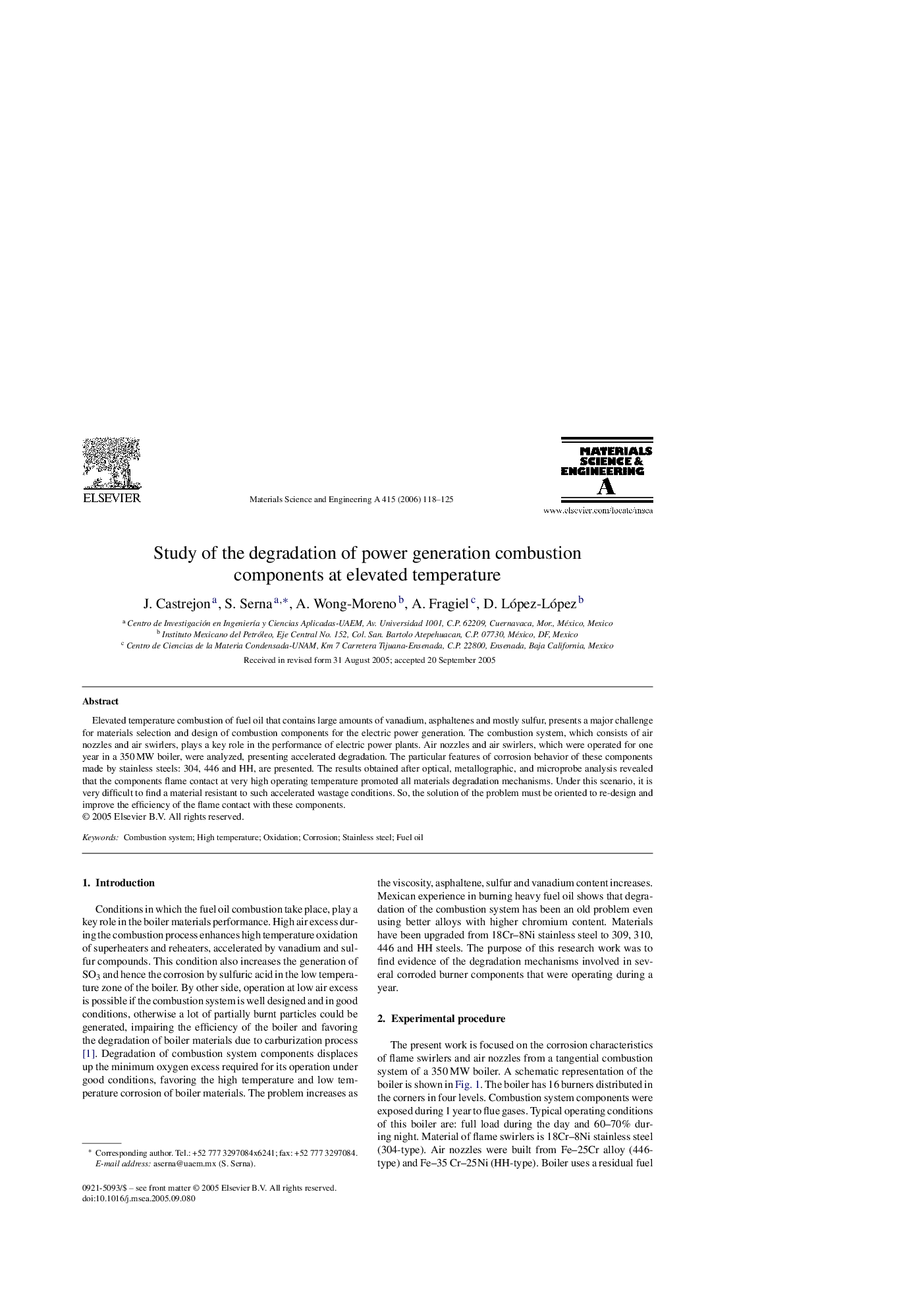| کد مقاله | کد نشریه | سال انتشار | مقاله انگلیسی | نسخه تمام متن |
|---|---|---|---|---|
| 1586120 | 1514929 | 2006 | 8 صفحه PDF | دانلود رایگان |

Elevated temperature combustion of fuel oil that contains large amounts of vanadium, asphaltenes and mostly sulfur, presents a major challenge for materials selection and design of combustion components for the electric power generation. The combustion system, which consists of air nozzles and air swirlers, plays a key role in the performance of electric power plants. Air nozzles and air swirlers, which were operated for one year in a 350 MW boiler, were analyzed, presenting accelerated degradation. The particular features of corrosion behavior of these components made by stainless steels: 304, 446 and HH, are presented. The results obtained after optical, metallographic, and microprobe analysis revealed that the components flame contact at very high operating temperature promoted all materials degradation mechanisms. Under this scenario, it is very difficult to find a material resistant to such accelerated wastage conditions. So, the solution of the problem must be oriented to re-design and improve the efficiency of the flame contact with these components.
Journal: Materials Science and Engineering: A - Volume 415, Issues 1–2, 15 January 2006, Pages 118–125